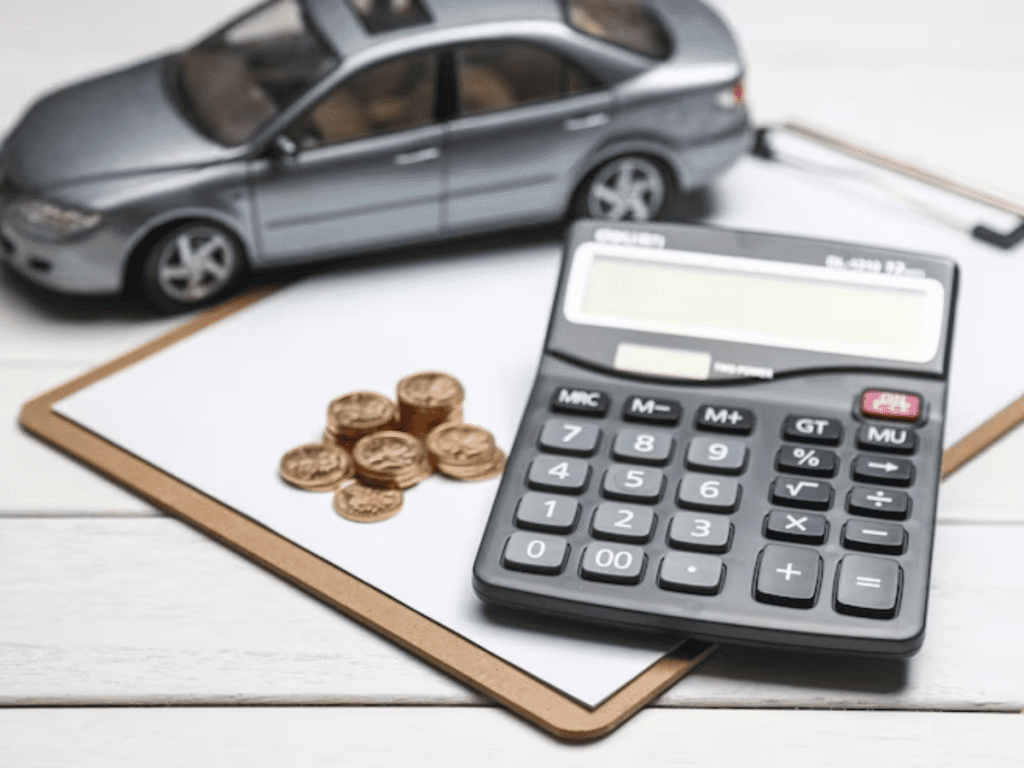Introduction
Buying a used car is a thrilling but significant financial choice. For most individuals, a car is not only a way to get from place to place but a part of everyday life. Used car financing is one of the most popular methods for keeping this type of purchase affordable, but it’s also where buyers are likely to find additional fees, too-high interest rates, and service charges that add a lot more cost to the car than they ever intended. If you finance a used car, knowing how to steer clear of these extra fees is key to ensuring that you don’t overpay. If you want to finance your used vehicle in a financially savvy manner and avoid unwanted surprises, this detailed guide will take you through the basic steps to ensure that you aren’t exploited. We will cover your financing alternatives, the relevance of your credit score, avoiding additional fees, and negotiating better loan terms. With this information, you can approach your used car financing with confidence.
Understanding the Types of Financing Available
When you’re in the market to finance a used vehicle, the initial step is to learn about the various financing options that are available to you. The process of financing can differ based on whether you opt to deal with a dealership, a bank, or an online lender. Let’s take a closer look at each of these financing options.
Dealer Financing: Dealer financing is one of the most popular methods that individuals use to finance a used vehicle. Here, the auto dealership deals with lenders, credit unions, or banks to provide you with financing when you purchase the vehicle. This may sometimes lead to a convenience advantage, but here it should be kept in mind that dealerships usually put a markup on the interest rate they provide you with. Some dealers might offer low-interest financing to entice you, but you’ll need to be cautious, as they may increase the loan term or hide additional fees to compensate for the lower interest rates.
Bank or Credit Union Financing: Another option is financing your used car through a bank or a credit union. Most individuals would rather deal with their bank or credit union since they can potentially obtain more favorable loan terms, particularly if they have a pre-existing relationship with the institution. In many cases, credit unions have lower interest rates than banks. This can prove particularly helpful if you have a good credit rating since you might be able to get lower rates and more favorable terms. Still, it’s always good to compare and shop around among different offers from multiple banks or credit unions before committing to a loan.
Online Lenders: Online lenders have also become a popular option in recent years as a alternative to conventional finance. Online platforms are usually able to offer instant approvals and competitive interest rates. Being able to apply for a loan online from home can be a huge advantage. In addition, some internet lenders provide pre-qualification features through which you can test your suitability without affecting your credit score. Like with every financing solution, it’s a good idea to research the lender extensively, get to know their charges, and read the small print before deciding on any offer of loan.
Every option for financing has its advantages and disadvantages. The trick to preventing hidden interest or service fees is to do your research and shop around comparing the rates, terms, and costs of each lender type in order to locate the most favorable offer.
The Need to Check Your Credit Score Prior to Financing
Your credit score will be a significant factor in your interest rate and overall loan terms. The better your credit, the lower your interest rate and, therefore, the less you will pay throughout the life of the loan. If you have a poor credit score, it might mean that you will end up paying higher interest rates and more in total interest charges throughout the life of the loan.
Before you go ahead and apply for a loan, it’s worth checking your credit score so that you can understand where you are. If your credit score is not perfect, it might be worth spending the time to improve it before applying for credit. Small increases in your credit score can make a huge difference in the interest rates you are given. If you already have debt, paying it off or closing small accounts will lower your total debt-to-income ratio, which can get you better loan terms.
Knowing your credit score will also allow you to estimate if a lender is giving you a good deal. If you have good credit but are presented with a high-interest rate loan, that may mean the lender is jacking up the rate for some purpose. It’s also worthwhile to review your credit report for inaccuracies or mistakes because these can hurt your score and might be corrected prior to seeking financing.
Shopping Around for the Best Financing Deals
One of the most important things to do when financing an used car is shop around for the best deal on financing. Just as you wouldn’t buy the first used car you look at, you should not accept the first financing offer you get. It can save you hundreds of dollars over the term of the loan by shopping around for the lowest fee, rate, and best loan terms.
It’s a good idea to be pre-approved for a loan prior to visiting the dealership. Pre-approval indicates that a lender has approved lending you a specified amount based on your creditworthiness, and you’ll have a clearer picture of the interest rates and loan terms that you qualify for. With a pre-approved loan in your pocket, you’ll have greater negotiating power when negotiating the price of the vehicle and financing terms with the dealership.
When comparing financing, you need to keep an eye on the following main points:
- Interest Rate: Interest rate is what percentage of the money the lender will charge you to borrow it. A small variation in the interest rate can make substantial savings if the loan runs over a long period of time. With a lower interest rate, you pay less interest charges over the loan term.
- Loan Term: The loan term is the time frame for which you will be paying back the loan. Having a longer loan term usually translates into lower monthly payments, but you will be paying more in interest in the long run. A shorter loan term will have higher monthly payments but will cost you less in interest.
- Fees: Certain lenders charge origination fees, processing fees, and other fees for services. These fees can accumulate rapidly, so it’s critical to inquire about them initially and obtain a detailed breakdown of all the fees charged on your loan.
By comparing the overall cost of the loan, in terms of interest, fees, and terms, that you get by shopping around, you can be sure to get the best for your money.
Understanding the Total Cost of the Loan
It is simple to get carried away with the thought of maintaining low monthly payments, but only considering the amount of the monthly payment can cause one to forget other equally important elements of the loan. The overall cost of the loan is calculated by a number of factors, including the interest rate, loan period, and other fees.
For instance, a loan with a short loan term and a low interest rate might have a smaller monthly payment, but it will cost you more in the long term since you will be paying interest for an extended duration. Conversely, a loan with a longer loan term and a higher interest rate will have larger monthly payments but could end up costing you less on interest in the long term.
In order to determine the actual cost of the loan, you will need to take into account:
- The interest rate being charged on the loan
- The term length of the loan
- Any charges levied on the loan
- The amount of money you will be paying back during the loan period
It’s worth requesting a breakdown of the complete cost of the loan so you know exactly how much you will be paying in the long run. Steer clear of being tempted by low monthly payments, because this can usually result in you paying more for the vehicle overall.
Steer Clear of Add-Ons and Unnecessary Extras
When buying a used car with financing, dealerships will usually attempt to sell products or services that are not required. Some of the products sold as add-ons include extended warranties, gap insurance, paint protection, and various services meant to pad the profits of the dealership. Some of these products are actually beneficial, but others are unwanted or overpriced.
Extended Warranties: Extended warranties may give you peace of mind, but they tend to be expensive, and many used cars come with a manufacturer’s warranty that will cover repairs for a set period of time. Ask yourself before buying an extended warranty if the car is still under warranty or if the warranty is worth the cost of the potential repairs you may need down the road.
Gap Insurance: Gap insurance pays the difference between how much you owe on the car and its true value if the car is totaled in an accident. If you’re financing a high percentage of the car’s value, gap insurance could be worth considering, but it’s usually overcharged at dealerships. You can possibly get less expensive gap insurance elsewhere.
Paint Protection and Rust Proofing: These are not often worth the additional expense. Paint protection and rust proofing can be had for much less at a location other than a dealership, and many used vehicles have factory-applied coatings that render these services unnecessary.
To prevent shelling out for add-ons that are not needed, always request that the dealership strip these items off your loan agreement. If they try to insist that the product is a requirement, take some time to find out if it’s truly required and if you can get it cheaper elsewhere.

